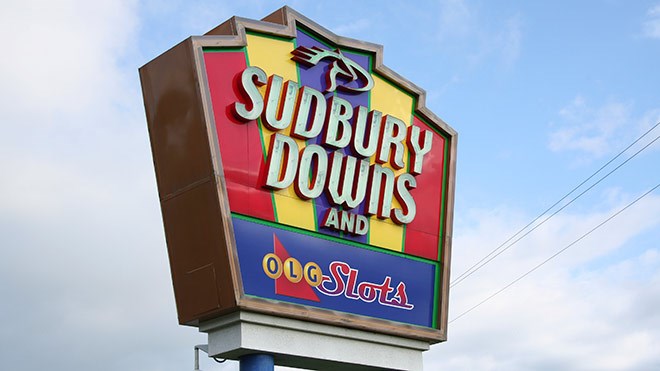They were forced to cancel the racing season this week, MacIsaac said, because they would have faced significant losses had they accepted the ORC deal. To suggest otherwise makes no sense.
“I don't know whether it's the most generous or not,” MacIsaac said. “I have no knowledge of what other tracks have been offered. (But) the other 99 per cent is going somewhere else.”
“We know what our costs are. The government knows what our costs are ... If it was so generous, why wouldn't we have accepted it? By not accepting this 'generous' offer, we have nothing.”
To be feasible, MacIsaac said they have to race at least 32 nights a year, and offer larger purses. Otherwise, horse owners, drivers and others who work in the industry can't make a living. Unlike southern Ontario, which has 16 tracks, the Downs is the only one in Northern Ontario. So owners can't race at multiple tracks to recoup their investment.
“We're a singular, remote track,” he said, adding they opened their books to the ORC to back up what they were saying.
“What is the alternative for us? This place is site specific, designed and built for horse racing.”
Having cancelled the racing season this week, they’re in the process now of winding down racing-related activities, MacIsaac said. That means laying off the few racing staff who were still working at the Downs.
On a campaign stop in Sudbury on Tuesday, Ontario Premier Kathleen Wynne said she hoped racing would return to the Downs. But she said the fact there is racing at 16 of the 17 tracks is only because her government recognized the importance of the industry, after former Premier Dalton McGuinty cancelled the Slots at Racetracks (SARS) program in 2012. That program gave track owners and horsepeople a share of gambling revenue in exchange for hosting the slots.
But questions over how that money was being used, and an ambitious casino-building plan aimed at reducing the deficit, prompted the end of SARS. But Wynne changed course when she became premier in 2013. And in addition to the five-year funding agreement, she also plans to integrate racing into the OLG modernization plan.
“I reversed the decision – that's why there's $500 million for horseracing, and why 16 of 17 tracks have a deal,” Wynne said. “My hope is that this will not be a permanent situation for Sudbury Downs. But the reality is we had to have a common approach with all the tracks. And that's exactly what we have.”
But Nickel Belt MPP France Gelinas said while there were problems with SARS, it could have been reformed rather than terminated.
“Had we fixed the SARS program, we could have transitioned the tracks and everyone would still be there,” Gelinas said Monday, after a stop in Sudbury by NDP Leader Andrea Horwath. “But no, they threw the baby out with the bathwater.”
She accused the province of leaving negotiations with the Downs until last, when most of the $500 million was already committed.
“Sudbury was not talked to or dealt with until everybody else got their share,” she said. “When they came to Sudbury Downs, there was one per cent left. The other big tracks we're all set with the millions of dollars they needed. They did not care about Sudbury Downs.”
Ward 4 Coun. Evelyn Dutrisac, whose ward include the Downs, said the news was sad for all the people who work in the industry. The equivalent of 100 full-time jobs are being lost at the track, in addition to about 1,000 jobs connected to supporting the industry.
“Families made a good living out of this and now they have lost their livelihood,” she said. “It's very sad. I thought there was hope – and I'm still hoping the province will offer them something better. But it looks pretty dim.”
Beyond the economic aspect, Dutrisac said the track is part of the cultural fabric for many people in Azilda, Chelmsford and the surrounding area. She has fond memories of the track herself.
“I remember meeting my husband at the races.”
For his part, MacIsaac praised Wynne for reversing the decision to cut the industry off from government support.
“To her credit, she recognized that it's a great economic driver, especially to rural communities,” he said. “But why does Northern Ontario get 1%?”
Even under the break-even proposal they presented the ORC, MacIsaac said it was “iffy” whether they could have survived. Since that offer was rejected, the prospects are dim.
“
We don't know what the options are -- they're not fixed in my mind yet,” he said. “It would be very, very tough to commence racing again ... (But) you never say never.”
Join Sudbury.com+
- Messages
- Post a Listing
- Your Listings
- Your Profile
- Your Subscriptions
- Your Likes
- Your Business
- Support Local News
- Payment History
Sudbury.com+ members
Already a +member?
Not a +member?
Sign up for a Sudbury.com+ account for instant access to upcoming contests, local offers, auctions and so much more.
